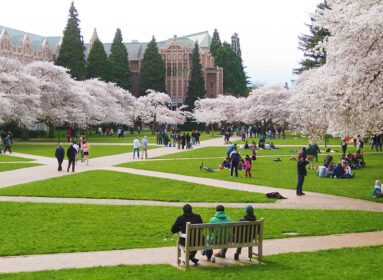Renowned Modern Orthodox rabbi in Stamford this month
By Cindy Mindell
STAMFORD – Irving (Yitzchak) Greenberg, also known as Yitz Greenberg, is a Modern Orthodox rabbi, Jewish-American scholar, and author known as a strong supporter of Israel and a promoter of greater understanding between Judaism and Christianity.
Greenberg will engage the Stamford community as scholar-in-residence this month, as part of the United Jewish Federation of Greater Stamford, New Canaan and Darien’s new initiative,” L’Atid – To the Future.” Greenberg will discuss the critical opportunities and responsibilities facing Jews today.
Ordained in 1953 at Yeshiva Beis Yosef in Brooklyn, Greenberg went on to earn a PhD from Harvard. He served as rabbi of the Riverdale Jewish Center in the Bronx and as associate professor of history at Yeshiva University. He is a founder of the department of Jewish studies at City College of the City University of New York, where he was also chairman and professor.
Alongside philanthropist Michael Steinhardt and Greenberg’s late son, J.J., the rabbi played a founding role in the Jewish Life Network/Steinhardt Foundation, which initiated partnerships including Birthright Israel, the Partnership for Excellence in Jewish Education (PEJE), and MAKOR (now Makor/Steinhardt Center of the 92nd Street Y), which reaches out to Jews in their 20s and 30s. Greenberg has served as president of Clal-The National Jewish Center for Learning and Leadership in New York and as chairman of the United States Holocaust Memorial Council.
He is married to the Orthodox Jewish feminist writer, Blu Greenberg.
Greenberg’s thought centers on two key concepts: tikkun olam, humanity working as ‘co-creator’ with God in improving the world; and the Jewish people’s Covenant with God enjoining them to set an example for the moral edification of humankind. His writings focus on the Holocaust and on the historical and religious significance of the State of Israel. He has also written extensively on the theory and practice of pluralism and on the theology of Jewish-Christian relations. A respected scholar, Greenberg is considered a mentor by a generation of distinguished American Jewish scholars, including Rabbi Joseph Telushkin and Michael Berenbaum.
Greenberg will present his keynote talk, “Humanity Comes of Age: How Can Judaism Lead the Way?” on Wednesday, March 20. The topic is based on his forthcoming book.
“The thesis is that tikkun olam – the idea that this world can be turned into a paradise and that this is the purpose of human life – is the most impactful idea of Judaism that transformed the world, shaping Christianity, Islam, and modern Western civilization,” Greenberg says. “Still no less a contribution was the Jewish idea of the method to do this, namely, the brit or covenant between God and humanity – later, with Jews as lead partners – and between the generations to work at it step by step, as long as it takes, until it is accomplished.”
As Greenberg observes, this partnership is not a one-time treaty, like accepting the Torah at Sinai, but an ongoing relationship in which the Divine and human roles change as humans develop.
“In Biblical Judaism, God is the dominant partner, doing visible miracles, sending messages from and/or through prophets, etc.,” he says. “Rabbinic Judaism emerges when God self-limits again to call on humans to take a more mature, responsible role in the partnership. There are no more visible miracles – compare Purim to Passover – and human actions much more determine the outcome. There are no more revelations from heaven or prophets. Humans, [led by] rabbis, use their brains, study past revelation, and figure out what God’s instructions are now. However, the more hidden God actually comes closer and mitzvot, halacha, and a sense of God’s Presence expands. Jews become more learned and participatory – think of ‘People of the Book.’”
Greenberg’s thesis is that humanity is living through another Divine self-limit, calling humans to the highest level of responsibility in the covenant. “We live in a world where God is totally hidden, i.e. secularity is widespread,” he says. “This has been interpreted that humans will make this world a paradise – witness the movements of liberalism, Communism, Socialism, Nazism, etc. – but for many, God is no longer believed in or seen as a partner. My argument is that Judaism’s role is to explain that this is a call for higher human role in overcoming the enemies of life and dignity i.e. poverty, hunger, oppression – tyranny, racism, sexism, antisemitism – war, sickness. But our task is to explain that the partnership is still on, but moving to a higher level. The loss of the sense of partnership and accountability accounts for a lot of the going out of control: industry turning into pollution; global warming; species destruction; political liberation turning into totalitarian domination, oppression and mass murder; science and medicine over-treating; individualism turning into narcissism and consumerism, etc.”
Greenberg concludes that Jews must now “grow up religiously.”
“We must seek the holy in the secular where God is hidden, take responsibility for the world, nature, and the state of humanity, starting with our own but embracing all people,” he says. “This moves us beyond the present denominational lines, hopefully into a more mature religious life which will cover all of life.”
The way Jews choose to act now is especially crucial, Greenberg says, not only for our people but for humanity as a whole. “Jewish behavior and strategy, and cooperation with fellow human beings, will be decisive in our fate – as proven in our experience of the Holocaust, where the failures of humans to take responsibility had catastrophic results, and in the case of Israel, where Jews took responsibility, acted, and received help from others,” he says. “Then, life and the good won out. We have to teach the lessons of taking power yet being in partnership and maintain the ethics and limits of power, embracing the secular yet making it holy, creating the future lifestyle yet bringing the past with us, etc. We need new partnerships with other religions as well as pluralism within to accomplish this – but it would be a life-saving gift for the world.”
“Humanity Comes of Age: How Can Judaism Lead the Way?” with Rabbi Irving (Yitz) Greenberg: Wednesday, March 20, 7:30 p.m., Temple Beth El, 350 Roxbury Road, Stamford. To register or for the full scholar-in-residence program: www.ujf.org / (203) 321-1373.
Comments? email cindym@jewishledger.com







 Southern New England Jewish Ledger
Southern New England Jewish Ledger
















